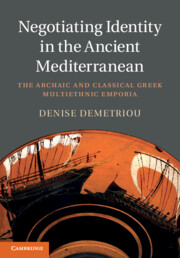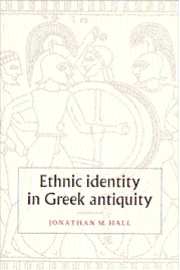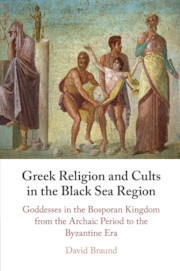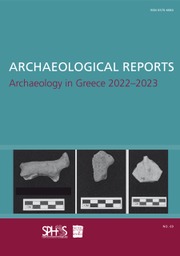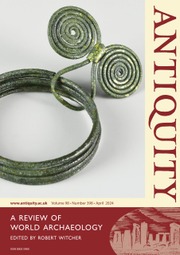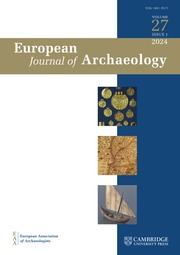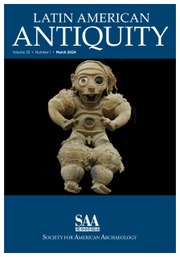Negotiating Identity in the Ancient Mediterranean
The Mediterranean basin was a multicultural region with a great diversity of linguistic, religious, social, and ethnic groups. This dynamic social and cultural landscape encouraged extensive contact and exchange among different communities. This book seeks to explain what happened when different ethnic, social, linguistic, and religious groups, among others, came into contact with each other. What means did they employ to mediate their interactions? How did each group construct distinct identities while interacting with others? What new identities came into existence because of these contacts? Denise Demetriou brings together several strands of scholarship that have emerged recently, especially ethnic, religious, and Mediterranean studies. It reveals new aspects of identity construction in the region examining the Mediterranean as a whole and focuses not only on ethnic identity but also other types of collective identities, such as civic, linguistic, religious, and social identities.
- Studies identity construction through the examination of multiethnic commercial settlements, which connected the Mediterranean region with trade networks
- Considers civic, linguistic, religious and social identities, in addition to ethnicity, in order to demonstrate the variety of changing and competing identities available to members of a group at any given time
- Adopts an interdisciplinary approach, using literary, epigraphic and archaeological evidence, in order to examine the construction of identity among both elites and non-elites
Reviews & endorsements
"… this book will be a welcome addition for researchers interested in the Ancient Mediterranean and, in particular, in the role of trade and religion in the organization of multicultural spaces."
Meritxell Ferrer-Martín, Bryn Mawr Classical Review
Product details
January 2013Hardback
9781107019447
308 pages
244 × 170 × 19 mm
0.69kg
17 b/w illus. 3 maps
Available
Table of Contents
- Introduction
- 1. Emporion
- 2. Gravisca
- 3. Naukratis
- 4. Pistiros
- 5. Peiraieus
- Conclusion.

